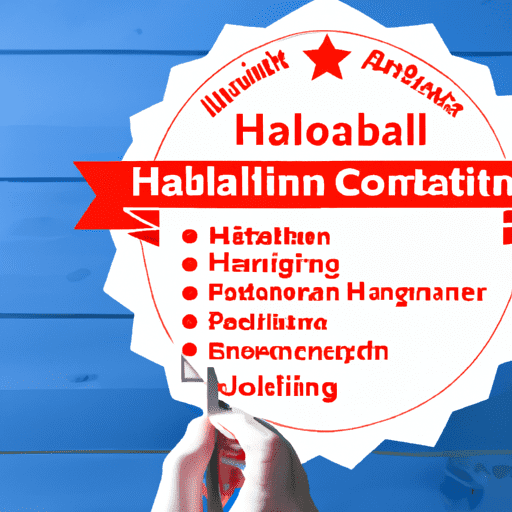In recent years, the halal market has become increasingly important for businesses, with Muslims representing a significant and rapidly growing consumer group. In order to tap into this market, many businesses seek halal certification, which is a stamp of approval that a product or service meets the Islamic dietary requirements. This article will explore the benefits of halal certification for businesses, both in Muslim-majority countries and globally.
1. Access to a Billion-Dollar Market
The halal market is worth an estimated $2.3 trillion a year and is expected to grow to $3.2 trillion by 2024. This market includes not only food, but also cosmetics, fashion, healthcare products, and more. By obtaining halal certification, businesses can tap into this huge and rapidly growing market.
In Muslim-majority countries, halal certification is often a requirement for businesses to succeed. In Indonesia, for example, the government mandates that all food, beverage, and medicine products must be certified halal to be sold in the country. In Malaysia, a halal certification logo is seen as a necessary trust signal for Muslim consumers.
2. Increased Consumer Trust
Halal certification is more than just a religious obligation; it is also a way to ensure quality and safety. To obtain certification, businesses must adhere to strict guidelines that require the use of pure and healthy ingredients, hygienic production processes, and ethical business practices. This means that consumers can trust that products or services that are halal certified are of high quality.
By obtaining halal certification, businesses can build trust and loyalty with Muslim consumers. Trust is crucial when it comes to consumer purchasing decisions, and halal certification is seen as an important trust signal. Halal certification can also help businesses to differentiate themselves from competitors, especially in Muslim-majority countries where the market is becoming increasingly competitive.
3. Expanded Distribution Channels
Halal certification can also help businesses to expand their distribution channels. Many halal certification bodies have partnerships with distributors and retailers in Muslim-majority countries, making it easier for businesses to enter these markets. This can be especially beneficial for small and medium-sized enterprises (SMEs) that may not have the resources to build their own distribution networks.
4. Compliance with Religious Requirements
For businesses that operate in Muslim-majority countries, halal certification is often a legal requirement. This is because Islamic dietary requirements are enshrined in Islamic law and must be adhered to by all Muslims. For businesses that want to cater to Muslim consumers worldwide, halal certification is also important as it ensures that products or services are compliant with religious requirements.
5. Increased Marketability
Halal certification can make it easier for businesses to market their products or services to Muslim consumers. By having the halal certification logo on their packaging or marketing materials, businesses can capture the attention of Muslim consumers who may otherwise overlook their products or services. This can be especially beneficial for businesses that are new to the halal market or that are looking to expand their reach.
6. Growth Opportunities
The halal market is not just limited to Muslim-majority countries. Muslim consumers represent a significant and growing demographic in many non-Muslim majority countries, such as the United States, Europe, and Australia. With the global Muslim population projected to grow by 70% by 2050, halal certification presents a significant growth opportunity for businesses that want to tap into this market.
Conclusion:
Halal certification is a big business in the Muslim world and there are numerous benefits to businesses. By obtaining halal certification, businesses can access a billion-dollar market, build consumer trust, expand distribution channels, comply with religious requirements, increase marketability, and tap into growth opportunities. For businesses operating in Muslim-majority countries, halal certification is often a requirement for success. However, even businesses that don’t operate in these markets can benefit from halal certification by tapping into the growing Muslim consumer demographic worldwide.
